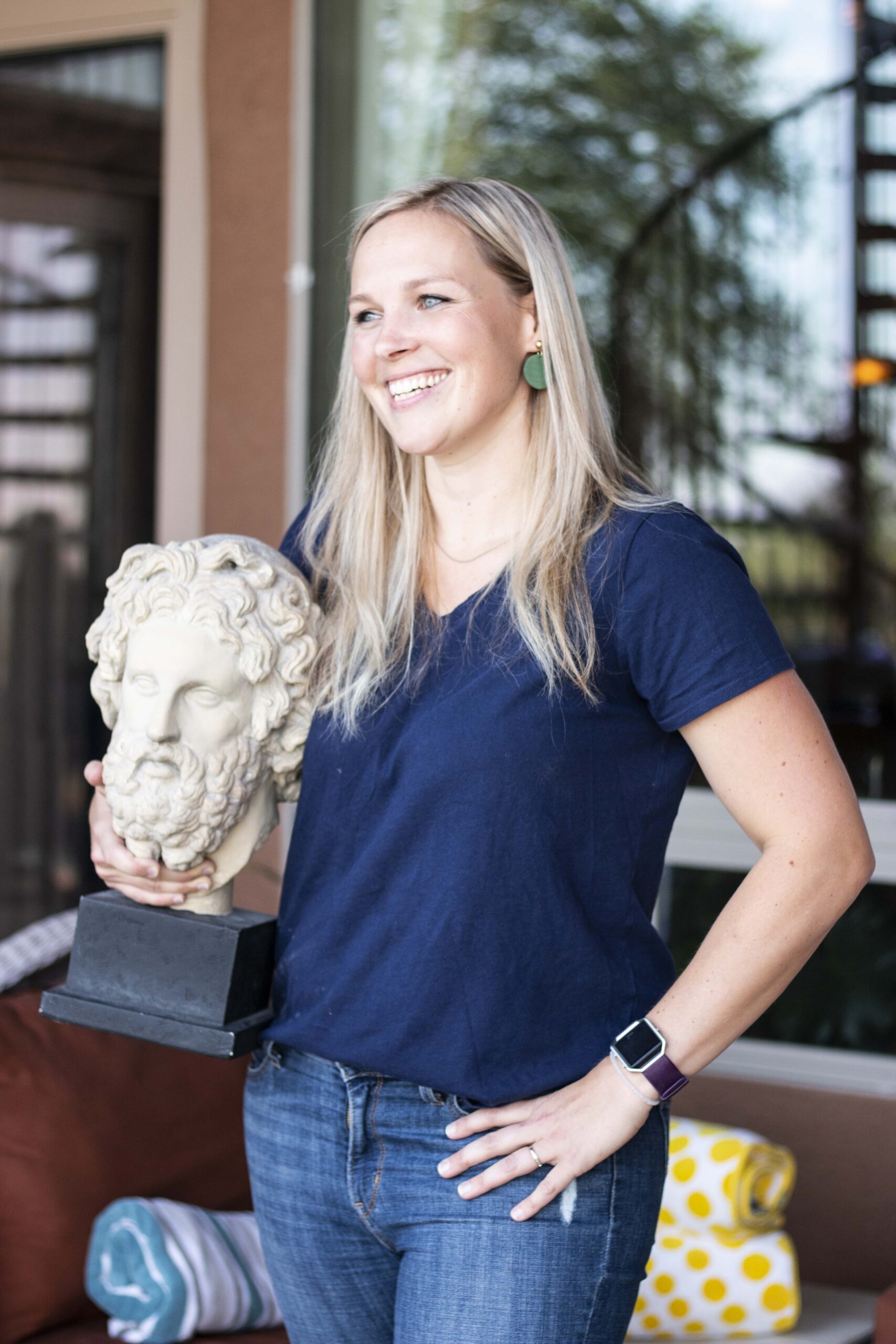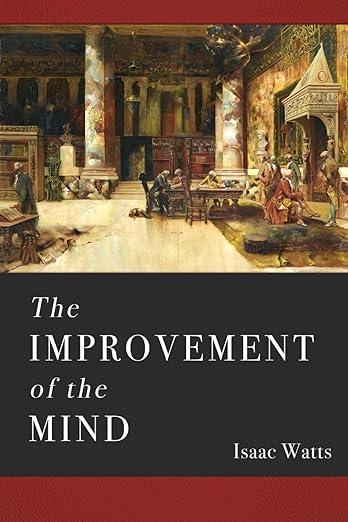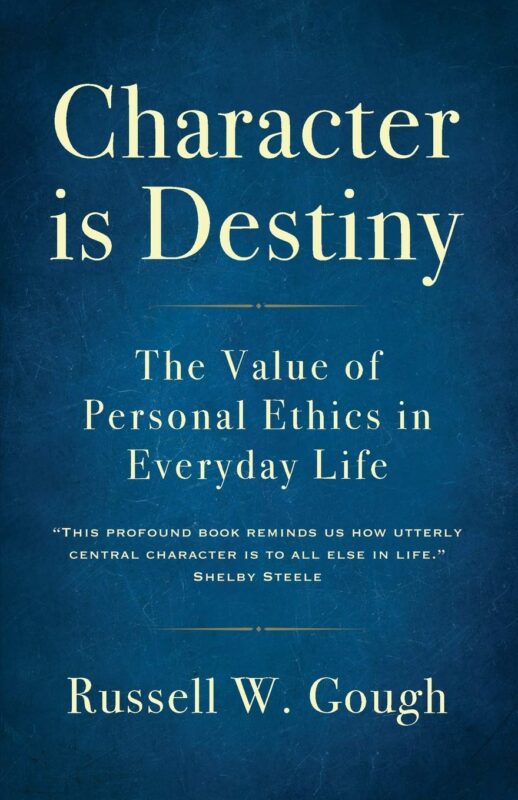SS#155 – Improving Conversation
In this episode, we dive into The Improvement of the Mind by Isaac Watts—specifically Chapter 9, “Rules of Improvement by Conversation.”
Meaningful conversation shapes our intellect, strengthens our community, and draws us toward wisdom. Watts offers timeless insights on how to cultivate better dialogue—not just in formal book groups, but around the dinner table, in church fellowship, and online.
From selecting book club participants to redirecting off-track conversations, we cover how to discern which companions are helpful (and which might hinder), how to disagree charitably, and how even light-hearted conversation can serve a higher purpose.
We also explore the modern challenges of social media, the temptation to “win” conversations, and the forgotten virtue of asking sincere questions. Whether you’re leading a book club or chatting with a neighbor after church, Watts reminds us that every conversation is an opportunity for mutual improvement—and a little more intentionality goes a long way.
Improving your mind with conversation
Today’s Hosts and Source
Isaac Watts (1674–1748) was an English nonconformist minister, song writer, theologian, and logician. First published in 1741, The Improvement of the Mind is a follow-up to Watts’s earlier work on Logic. The Improvement of the Mind could be considered one of the earliest examples of a self-help guide (though it is help from Watts’s distinctive Christian view). In Watts’s day, to “improve” something did not merely mean to make something better; it meant to make the most of something. He recognizes that not everyone has the same opportunities, but everyone should be concerned with maximizing their intellectual abilities. This timeless guide contains chapters on discussing, reading, writing, listening to lectures, and virtually every activity where we rely upon our minds. What could be more important to reclaim in our modern world with all of its mental derangements?
“Carry about with you a constant and sincere sense of your own ignorance.”
Isaac Watts
Scholé Every Day: What We’re Reading
Don Quixote, Miguel Ceruantes
Seen in historical context, it fits within the Western literary tradition of social and moral critique rather than as mere mockery. Joffre Swait has excellent thoughts on Don Quixote as he works on a new translation.
Character is Destiny, Russell W. Gough
The book emphasizes the distinction between character and personality, highlighting that moral traits (like honesty and unselfishness) are ethically weighty, whereas personality traits (like introversion or extroversion) are neutral.
Practical Theology, Peter Kreeft
Breaks down Aquinas’ Summa into bite-sized explanations, making theology accessible and practical for high school students and adults.
What does ‘improvement’ of the mind mean?
No one today would say, “improvement of the mind.” These days, people say “personal development,” which feels a little squishier and much more subjective. Isaac Watts, on the other hand, is operating from an assumption we often forget: there’s an external standard of truth and goodness, and we can move closer to it. That’s what improvement means—not that we reinvent ourselves or self-define success, but that we draw nearer to what is real, true, and good.
Improvement presumes two things: that we’re not yet what we ought to be, and that we can, by grace, move in the right direction. We found it refreshing to hear that stated so plainly. Conversation, then, isn’t merely chit-chat or even the exchange of ideas—it’s a means by which we become better. But only if we aim it that way.
If we show up to book club or Bible study just hoping to be heard, or to prove we’re right, we’ve missed the point. Watts encourages us to approach conversation with humility, with charity, and with a desire to grow. And let’s be honest: wouldn’t that transform not only our minds but also our relationships?
How to choose discussion companions
We’ve all been in book clubs or discussion groups that flourished—or floundered—because of the people involved. Isaac Watts calls us to be thoughtful about who we choose to converse with, and he doesn’t mince words. He wants us to surround ourselves with people of moral character, curiosity, and diligence.
That doesn’t mean we only talk to people who agree with us—far from it! Watts is clear that we ought not confine ourselves to those of the same “party or opinion.” Instead, we look for companions who are honest, humble, and earnest in their pursuit of truth. They may not share our views, but they share our aim: improvement.
Watts even goes so far as to say we should be cautious about brilliant people who lack virtue. That gave us pause. How many social media voices, podcast guests, or authors do we invite into our mental circle without considering their character? Watts reminds us that truth-seeking is not merely intellectual—it’s moral. If the goal of conversation is improvement, then who we talk to (or read, or follow) matters.
Of course, in most real-life groups, we don’t screen applicants or check credentials. But we can ask: am I cultivating the kind of character and curiosity that would make me a worthwhile conversation partner?
Conversation disqualifiers
We laughed and nodded a lot reading this list from Watts: the overly reserved, the know-it-all, the verbal wanderer, the jokester, the person who takes offense at disagreement… we’ve seen all these. We’ve been some of them. And honestly, it was convicting.
This isn’t about personality types—it’s about posture. Conversation for improvement only works if we come with humility and goodwill. If we’re just waiting for our turn to talk, or crafting a rebuttal instead of listening, we aren’t really in the conversation at all.
Watts also warns against people who act like spies—those who collect information not to grow or bless, but to use for their own advantage. It reminded us of how easily book club chatter can slide into gossip or weaponized screenshots. This isn’t improvement—it’s manipulation.
His point is simple but powerful: conversation is a moral act. It requires honesty, charity, and a willingness to be changed. And if we find ourselves surrounded by people who can’t (or won’t) engage that way, we may need to rethink the circle—or recommit ourselves to being the kind of people who keep it healthy.
Fruitful conversation
We’ve all been at the awkward gathering where no one wants to talk—and someone has to break the silence. Watts recommends some surprisingly practical tips: ask about someone’s area of interest, pose a question, or even read a short paragraph aloud and use it to spark discussion.
That last one might feel foreign to us, but it made us wonder: have we lost something by not reading aloud together more often? Once upon a time, that was normal. Now it feels quaint—or radical. But maybe it’s just what we need to push conversations beyond weather and schedules.
Fruitful conversation also requires intention. Watts wants us to approach every interaction with the hope of learning something—even from someone we might otherwise overlook. We’ve tried this, and it’s astonishing what people know when we simply ask.
So whether we’re leading a book club or making small talk at church, let’s approach others with genuine curiosity and a learner’s heart. You never know where it might lead.
Intentional conversation
If you’ve ever led a discussion group, you know: it’s easy for conversations to wander, and it’s hard to steer them gently without shutting people down. Watts helps us here, too.
He reminds us that the goal isn’t to dominate or control—it’s to edify. Directing a conversation well means keeping it centered on what matters most, while still being kind, patient, and open to detours that might bear fruit.
One strategy we loved: pose questions hypothetically. Instead of saying, “You’re wrong,” try, “What if someone said…?” It invites engagement without defensiveness. Watts encourages us to listen generously, correct gently, and pursue truth faithfully—not to win, but to build each other up.
He also notes that truth can stand up to scrutiny. We don’t have to protect it from disagreement. In fact, we might discover deeper understanding by exploring objections together.
This is what we want in our conversations: not just to air opinions or “process” out loud, but to help each other think more clearly and love what’s true. That requires courage and charity, firmness and friendliness. Thankfully, those are virtues we can grow—together.
Encouraging the quiet
Every group has its dynamics—and every group needs someone who knows how to navigate them. Watts reminds us that encouraging the quieter members of a conversation is not only kind, but essential.
It’s easy to let the talkers do all the talking. But those who speak less often often have much to contribute—if we make space for them. Sometimes that means explicitly inviting someone to share. Sometimes it means reminding the overenthusiastic participants to hold back a little. (We’ve all needed that reminder, too.)
As leaders, we’ve tried to adopt the practice of calling out value when we hear it: “That was a great point,” or “I hadn’t thought of that.” It doesn’t take much, but it can make a world of difference in someone’s confidence.
Good conversation is a communal effort. If one voice dominates, we all miss out. So let’s be intentional in creating room for reflection, silence, and second thoughts. Let’s model what it means to wait, to listen, and to believe that the quietest person in the room might just have the most insightful thing to say.
Arguing without being argumentative
This might be one of our favorite sections—because who hasn’t struggled with this balance? Watts distinguishes between zeal for truth and the vain love of victory. That line alone is worth taping to your bathroom mirror.
We’ve all been tempted to “win” the conversation. But the goal is truth, not triumph. That changes how we speak, how we listen, and how we disagree.
Watts encourages us to find common ground, define terms carefully, and keep the main thing the main thing. He reminds us not to assume bad motives, and to argue ideas—not personalities. When we do disagree (and we will), let it be with clarity and charity.
What struck us most is how much this is a discipline of love. It’s love that makes us patient with misunderstanding, gentle with correction, and willing to be wrong ourselves. And it’s love that frees us to ask hard questions and speak hard truths—not to defeat each other, but to serve one another.
When to speak up
Watts doesn’t just teach us how to have good conversations—he reminds us when silence is not an option. Sometimes we must speak up, even if it’s awkward, even if it’s unpopular, even if we’d rather not.
When someone is saying something that’s truly dangerous or misleading—especially in matters of faith or virtue—we’re not being loving by saying nothing. Silence can imply agreement. And worse, it can leave others vulnerable to being misled.
We’ve all had moments when we held back and regretted it. Watts gives us a framework for those moments: speak plainly, but humbly. Correct, but with charity. Defend the truth, but not to prove ourselves right—to protect and bless others.
This is hard. It requires wisdom, courage, and grace. But if the aim is improvement—for ourselves and our community—then sometimes the most loving thing we can do is say, “Actually, that’s not true,” and then explain why.
The posture of a learner
If there’s one idea that threads through this whole discussion, it’s this: come to every conversation with the heart of a learner. Watts says it better than we ever could: “Carry about with you a constant and sincere sense of your own ignorance.”
That’s the key to fruitful conversation—not cleverness, not quickness, not having all the answers. It’s humility. It’s a genuine desire to understand more, to be changed, to grow.
We loved the idea that conversation is an act of neighbor-love. It’s not about asserting yourself. It’s about helping one another move closer to truth. That requires listening well, asking sincere questions, and admitting when we don’t know.
In our homes, our churches, our book clubs—this is the spirit we want to cultivate. Not just friendly chatter, but meaningful dialogue. Not debate for sport, but discussion for growth. And not just head knowledge, but wisdom that transforms how we live and love.
That kind of conversation might be rare, but it’s worth aiming for. And thankfully, it’s something we can all practice—starting today.
Mentioned in the Episode
Listen to related episodes:
SS #48: Someone Stole My Socrates
SS #61: Have Your Humble Pie … and Eat It, Too!
SS #69: Socratic Trialogue (with Renee Shepard!)
SS #101: Tell Me What I Want to Hear (Flattery & Lies)
SS #113 – The Ideal Type
SS #138 – A little more conversation, please (with Andrew Zwerneman!!)

Be a part of the conversation!
Discuss this podcast with other moms inside Sistership.
















